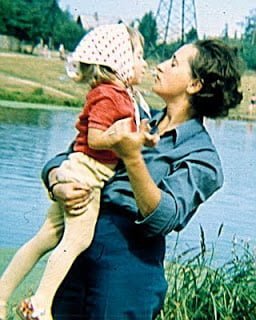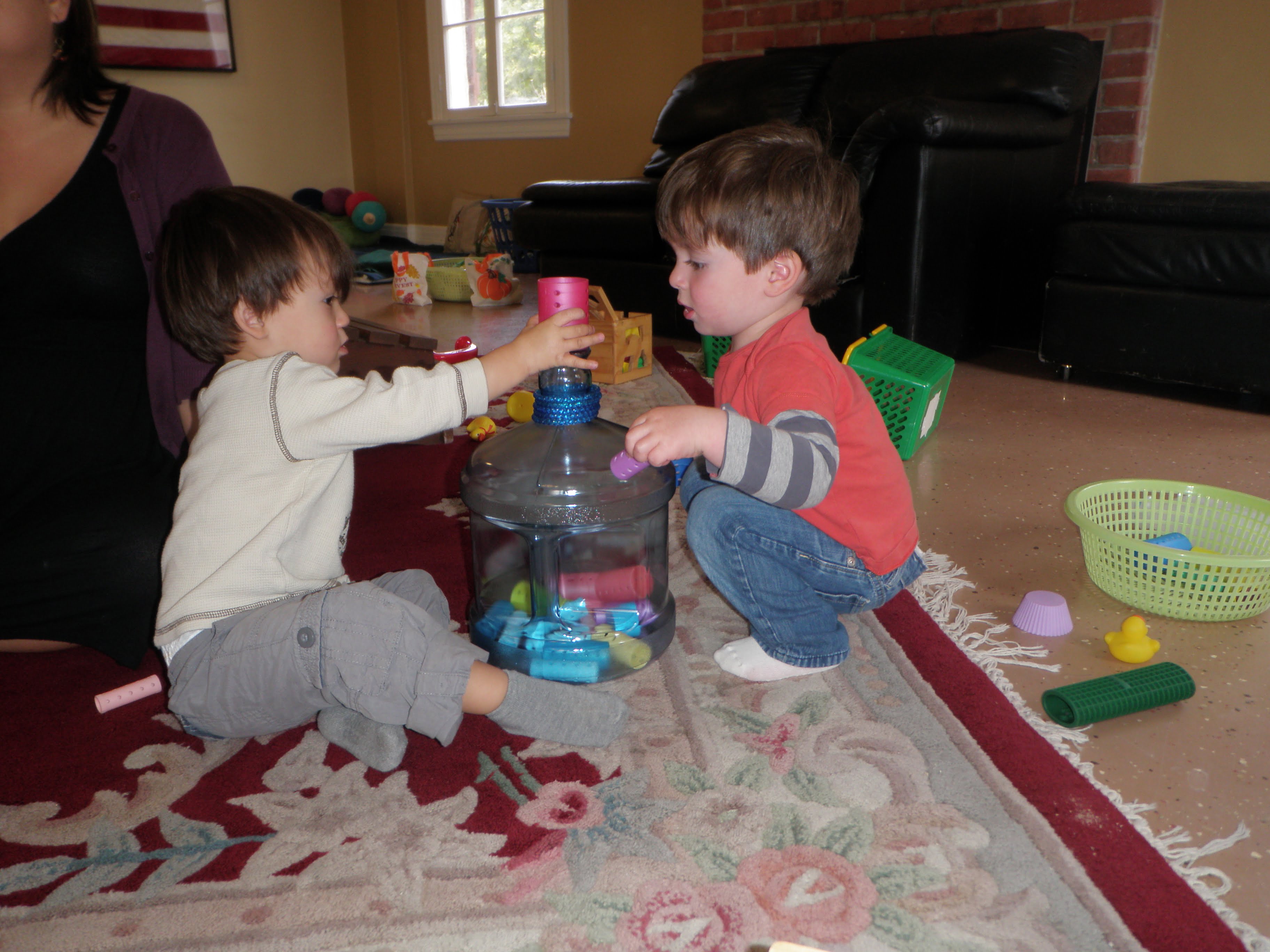One of the parents in my classes asked a great question today: From your classes, I learned not to hover over my child’s play, and not to help much when the child is exploring objects. And it was working beautifully for us. When my baby could not reach a toy I would just wait, observe, occasionally narrate and acknowledge his feelings of frustration. Now when he is a young toddler he often has a specific plan but does not always have all the skills to do it and he asks me for help. My question is how should I respond to him? Do I tell him that I am not going to help and I trust that he is going to figure it out someday or should I help?
When parents start attending my RIE® Parent-Infant Guidance classes I encourage them to:
- slow down
- observe more
- intervene less
- trust the child
And soon we get to see amazing things:
1. A child chose to play for many days in a row with the same toy. The parents decided to observe more and not help him find a new toy. The child did not waste time – he learned to be focused, persistent and tried different ways to use the toy.
2. Another child crawled to the basket full of balls. He reached for the ball many times. At first, both his mom and I thought that he was trying to get the ball out of the basket, but after some observation, we realized that he was more interested in examining the texture of the ball. So we decided not to help him get the ball and allowed him to pursue his way of exploration.
3. A girl dropped a lid into a box. It was hard for her to reach. And it was tempting for the parent to immediately offer help, yet after some struggle, the girl was able to retrieve the lid, and to her dad’s surprise, she dropped it back into the box, simply to experiment more with it. She wanted to repeat her actions over and over again to understand better, to learn and to see how she did it, and also to learn new ways of doing it. She was more focused on the process than on the result.
In those situations, grown-ups don’t need to intervene in the child’s play.
The children often ask us for particular help: to open the lid on the container, undress or dress the baby doll, or put on his shoes.
What can we do?
1. Observe
Get closer and start with observation.
2. Sportscast
Narrate what you see: “I see you are trying to open the lid.” Pause “It seems stuck…”
When you narrate – you are helping the child process information and bring some of the energy down. Sometimes, this is all that is needed.
3. Start with the least amount of help
If the child is still interested in pursuing the task and wants your help, offer the least amount of help.
You can offer a suggestion – make sure not to bombard the child with tons of them.
Or you might say: “Maybe I can hold the jar and you twist the lid.”
4. Re-evaluate your environment
Maybe the child is not quite ready for some of the toys/items. You want the environment to be challenging but at the same time, developmentally appropriate.
For example, at our studio, Ruth Anne replaced the doll’s outfit snaps with velcro – it made it possible for young toddlers to undress the baby doll independently or almost independently.
Here you can read a story about one of the mothers slowly guiding her daughter in the process: https://ourparentingplace.com/respond-rather-than-react/
Email me or call for more information about RIE® Parent-Infant Guidance™ Classes.
Wishing you all the best in the difficult yet exciting journey of parenting!
Warmly,
Teacher Kira














